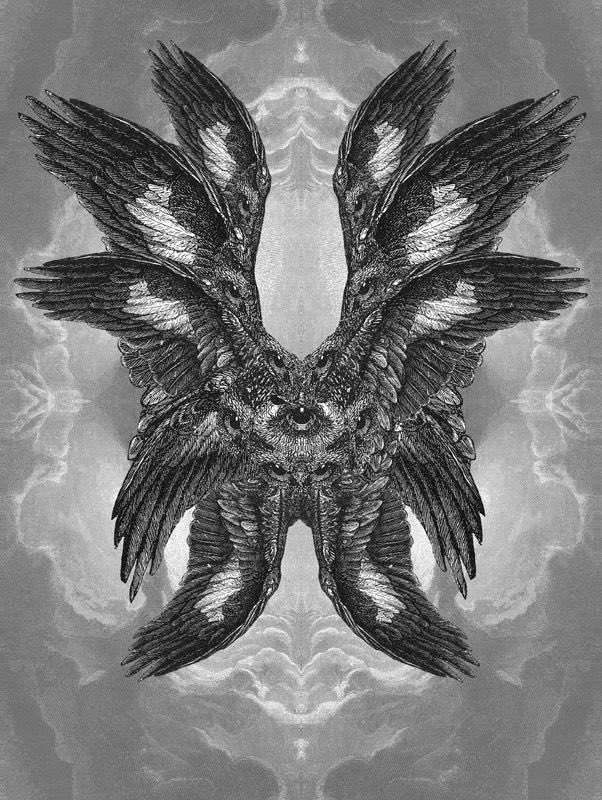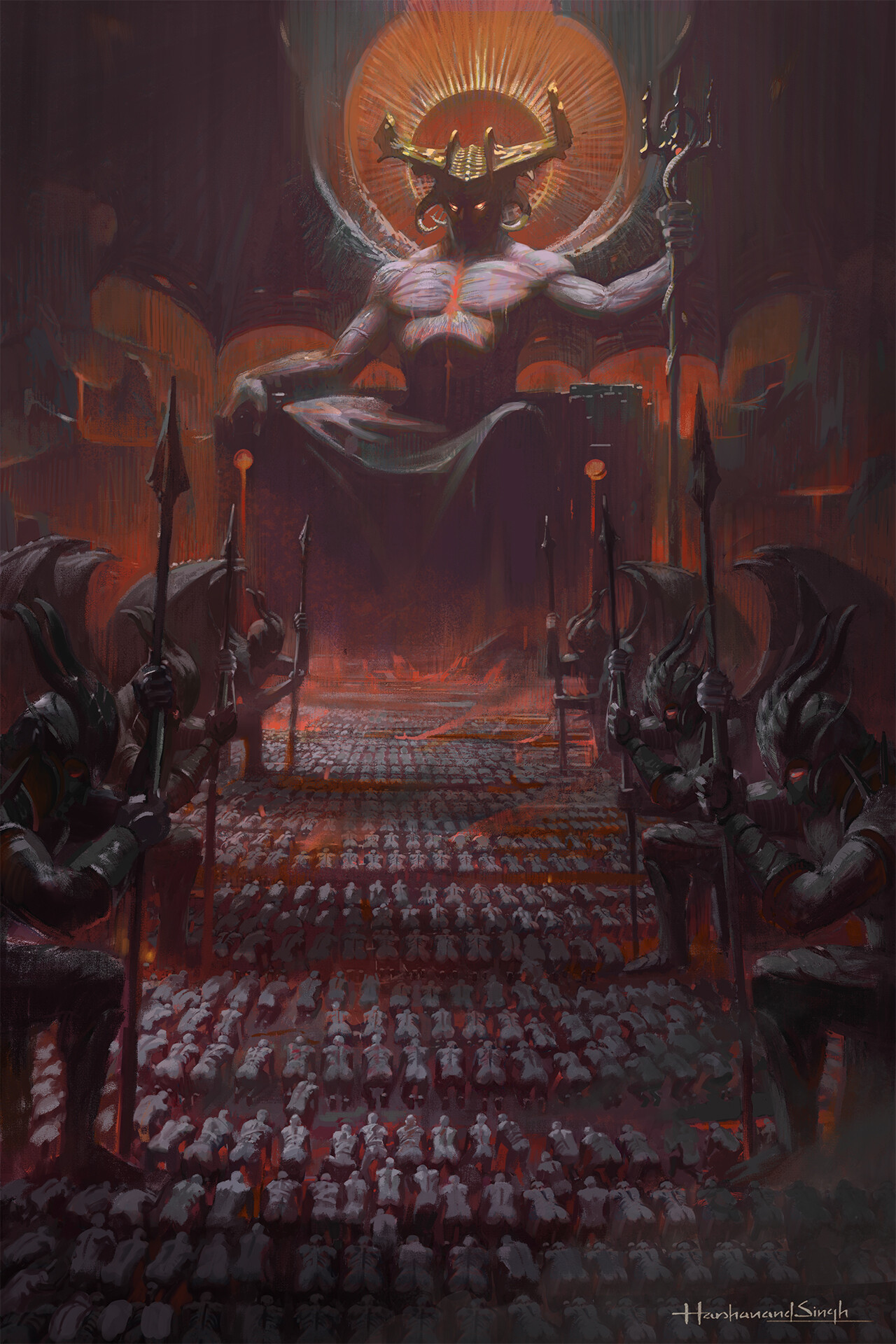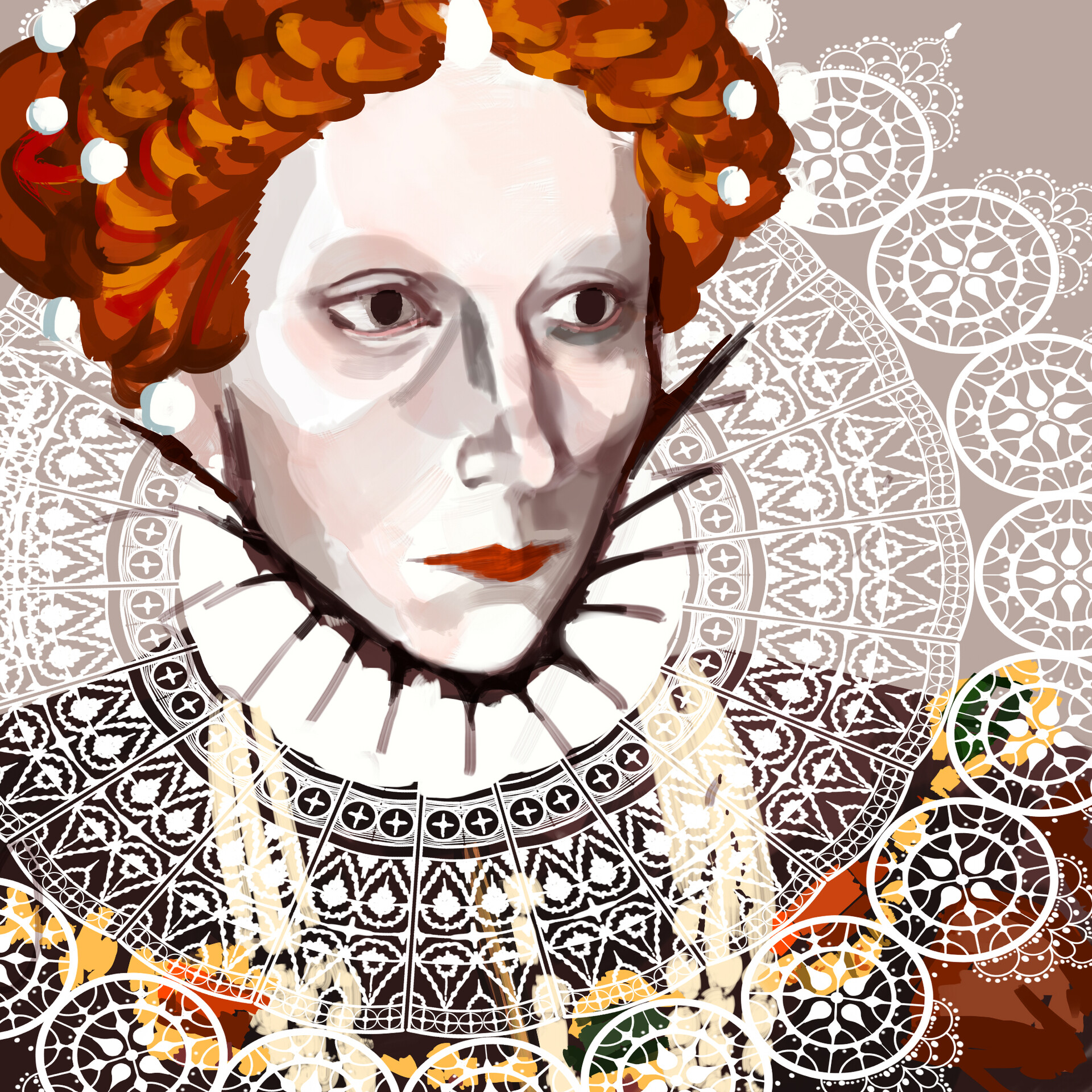In my previous post I detailed the more 'realistic' elements of an Elizabethan England setting. Now comes the decidedly 'unreal' in the form of:
- The 'true' nature of gods/deities
- Magic
- Weird and wonderful creatures, and demihumans
This is, of course, largely useless to my players but I do enjoy inulding myself.
 |
| Historia Mundis Naturalis, Pliny the Elder - Woodcut from a 1582 edition |
Gods, Deities, and other Powers
In a real-world setting where Christian sectarian strife plays a significant role in shaping events, is the God at the head of it all real? And if so what input does he have? These are less important than you might think given that I'm not planning on using the Cleric class in this setting, for a number of reasons:
- In a setting where the majority of Europe is dominated by some form of Christian faith and relatively large numbers of people are inducted into the priesthood I would imagine that there would be a reasonable number of Clerics present. This would imply that holy magic/miracles are somewhat commonplace, which I want to avoid.
- As an explanation for the above - in a game where magic can be used by a person sufficiently inducted into the occult arts, having a completely separate book of spells for Clerics implies that spiritual devotion and adherence to ritual would be enough to qualify, which would dial down the weirdness. You could of course say that Magic Users have the gift and instead Clerics are chosen by a deity or other power to fulfil their will on Earth, which to me implies that they are legitimate saints capable of performing miracles. Or alternatively that they've somehow deluded themselves into having powers through sheer faith. YMMV, Clerics are out of my game.
- Would all deities/powers provide the same spells to their followers, even if their nature and beliefs are radically different?
- In Lamentations of the Flame Princess Clerics mechanically sit as a sort of combined Fighter/Mage that lacks the former's increasing Hit Bonus and the latter's wider range of utility spells. They have access to unique spells and can cast at a greater encumbrance level but I think removing the class and giving Magic Users access to Cleric spells helps focus the character specialisations - Fighter is kill-y, Specialist gets skills, Magic-User gets magic, demihumans are where the weird edge cases emerge. In addition I find that having easy access to healing tends to encourage my usual players into a more 'combat as sport' playstyle which I try to avoid (though that might be on me as the GM).
- Clerics are Sunday School Mircale Makers and I can't think of a reason to not just lump their spells in with Magic Users - if I were to use a Cleric class (in the vein of a saint) I'd probably give them some sort of 'divine intervention' ability where they can channel their patron's energies but run the risk of harm and/or martyrdom.
That being said, it's fun to think about and a setting's cosmology provides inspiration for allies, monsters, powers, Faustian bargains and all sorts of weird things for players to dig into! So, does the Abarahamic God exist in this setting?
...
Maybe.
There's certainly a throne, and a Heaven, and angels, and a plan (or the remnants of one).
But no sign of Jehovah.
Metatron sits upon the throne, barely able to keep the firmament together as the kingdom of Heaven slowly crumbles around him. Such is the effort required to maintain the decaying edifice that he is able to narrate only snippets and fragments of the Almighty's cosmic plan (himself having only a limited perspective of it compared to the omniscience of his creator) to the choir of Seraphim that attend the throne and record the works of Heaven. As a result, the actions of angels make even less sense to mortals than they would with a fully functioning heavenly hierarchy. Confused mortal souls cower in the face of divine discord and it is not unknown for the angels to herd souls into the hall of the throne, never to be seen again.
The devils still inhabit the circles of Hell, both freed and imprisoned by the ancient pact with their creator. Satan reigns over the dukes of Hell but is not the same fallen angel cast out of Heaven by the host - Lucifer too has not been seen for many years. The title of Satan is claimed by the archdevils who fight internecine conflicts to claim the crown of Hell in an endless Miltonian struggle as none can truly kill the others. The souls of the damned are tormented and twisted to provide sustenance to the devils, though there are areas of Limbo that some are able to hide and persist in. The devils take great pleasure in rooting out these havens when they're not tempting mortals, planning an escape from their prison domain or organising a Black Crusade against Heaven.
Similarly, the adherents of the Hindu and Buddhist traditions find the cycle of rebirth unstable and souls achieving samsara are unable to free themselves, and unmentioned faiths would likewise find their divine hosts unsettled. Those old gods of faiths long extinguished and subsumed by the Abrahamic religions and others linger in the sidelines, bound by heavenly treaty but jealous and covetous of human souls. They may even be able to provide cryptic clues as to what malady has overtaken Heaven. Essentially the cosmological cycle of the world is fucked for reasons but the established faiths hold sway over the souls of mankind. The threat of Hell and damnation is very real, whether the Pope or other earthly ministries have any actual sway over that is less certain.
There are of course other Powers that will accept, if not necessarily care about or understand, worship - surviving nephilim, elder Elves, beings of the Veins of the Earth that were old when the Church was founded, particularly powerful and insane sorcerors, things from other realities etc. - but their abilities are decidedly limited. An elder Elf may be able to control a small pocket plane or affect the environmental conditions within a few square miles, and they certainly possess more knowledge than virtually any mortal, but they lack the reality-shaping powers of a true deity. I'll be writing more about this category later.
 |
| Thomas Honz |
Magic
So if gods are maybe, kind of real, or were once at least, how does magic fit into it? Well gods might be real but the books written about them don't necessarily contain the truth, the whole truth and nothing but the truth. The influence of the Heavens on the world is strong but it is not the only influence.
Imagine a roiling sea upon which floats flotsam and jetsam. A being of sufficient energy in said sea can pull together enough materials to make their own small island - life might be easier on it but it takes constant maintenance to render it seaworthy. As a craft upon the ocean, so do the various 'dominions' float upon a sea of roiling aether - the base essence of reality. Some entities did so in the past to create the universe the world exists in - through ebbs and flows in power, reproduction and other unknowable methods the modern pantheons emerged as inheritors of their power. This aether quests for cracks in the realities it buoys and infiltrates the essence of chaos into them. Bubbles of the raw substrate of reality boil free for a time and like a mutagen their passing leaves traces on the worlds they flow through. When beings in the world manipulate and use this power it manifests as magic. It is rather risky to do so. Some creatures incorporate this power into their very being, becoming magical themselves.
A trained magician can harness and direct these flows of power into spells and rituals. Spells are your usual Vancian trigger-mechanisms - a coiled spring prepared through meditation and self-delusion that can be unwound with a word and a gesture. A ritual is a longer, more involved affair that draws on this power slowly but in much greater amounts - items can be infused with power or even greater effects can be unleashed, provided no-one interrupts. This is, of course, a strictly human way of doing things - human psychology and physiology require that that magic be shaped and formed in this manner. Other beings have different ways of doing things...
The power of this magic ebbs and flows depending on the aetheric currents - great calamities and epochal shifts have occurred as our universe shifts between raging currents and relatively still 'waters'. In-game magic is at it's lower ebb - it's very uncommon, almost universally feared and outlawed, and while stories abound most people have little to no true experience of the supernatural.
 |
| BE NOT AFRAID |
Weird and wonderful creatures, and demihumans
There's a few general categories of supernatural creatures to consider given the above. This is a general overview of each, stats and mechanics will follow in a later post:
- Angels, devils and other 'religious' entities.
- Mythical beings.
- The undead.
- Folklore creatures.
- Demihumans.
Angels, devils and other 'religious' entities
Angels
Angels are the servants of God and act as extensions of His will. Currently this involves implementing the fragments of the divine plan uttered by Metatron when he's not wholly focused on maintaining Heaven from the throne. As such their actions on Earth seem random and senseless, when they appear at all. See above for an example of what they look like - these aren't beautiful people with feathery wings but the servants of an eldritch intelligence far beyond the comprehension of humanity. Angels have the following common traits:
- Terrifying Visage: There's a reason angels herald most of their appearances to humans with 'BE NOT AFRAID'. The human mind is almost incapable of comprehending angelic form - animals don't seem to mind - any human looking upon an angel must Save vs Magic or (1d4). If telepathy is used then there is no save and the telepath takes 2d10 psychic damage:
- Prostrate themselves while weeping piteously for 2d6 minutes.
- Flee in a blind panic until 1 mile away. They'll know when they're far enough.
- Be struck vacant and stand drooling in mindless terror until roughly jostled (Save vs Poison again to try and break free of the effect).
- Suffer a grand mal seizure for 1d6 minutes (Save vs Poison or be rendered semi-conscious for another 3d10 minutes; fatigued until the character can rest).
- Flight: Angels are capable of moving through the air. They don't bob unless they feel like it - most of them take a linear path between points at high speed, changing speed and direction with no regard for momentum.
- Halo: Angels possess a halo of divine light that illuminates all within eyeshot and dispels falsehood - a character must Save vs Magic or be unable to lie while within the light of an angel's halo. An angel may dim this light or increase the intensity to blind an opponent - Save vs Poison or be blinded until the light is dimmed.
- Tongues: Angels can speak, read and understand all languages.
- Adamant Form: Angels are immune to harm from mortal weapons, magic and forces. It is possible to bind and/or ward them for a time with the correct spells, formulae and glyphs but to cause them true harm takes astonishingly powerful magic, Hellish energies, or weapons and powers from Heaven itself. A barrage of cannon fire will barely slow one down.
Devils
Those angels who broke the compact and rebelled against their creator continue to rail against their imprisonment in the circles of Hell. Set to watch over the world and guide humanity, certain angels became enamoured with mankind and lived among them in human form, fathering children and neglecting their duties. In time they began to resent their creator and attempted to storm the gates of Heaven, leading to them being cast down into the pit of Hell and a Biblical scourge being enacted upon their descendants. In time their isolation led to hatred and envy of humanity (with some exceptions) - though the fallen angels were free from the constraints of Heaven they remained bound in a new prison, while their former wards continued on almost blissfully unaware. The First Satan, leader of the revolt against the Heavenly Host, set to work constructing the Brass City of Dis and soon Hell was reshaped in the eye of its new rulers. The souls condemned to Hell are used as tools and nourishment for the new devils, and the Circles of Hell were born.
Their time among mankind and the infusion of human soul-essence leaves the devils with a more comprehensible mindset compared to angels - they're not entirely alien creatures though their motives are hidden and their schemes span centuries. While they war and scheme against each other the primar motivation of a devil is to escape Hell and extend their dominion over creation. Devils share the following common traits:
- Mutable Form: A devil can change their size and shape as a Main Action. They can assume human form (though with a mark somewhere on their body that marks their true nature) and can dissolve into shadow. Smaller forms will change their relative stats but they can't increase their stats and abilities beyond their normal maximum by increasing in size.
- Hellish Pact: All devils can form a bargain with a willing sentient creature. This bargain must be made freely (not under duress or threat) and both parties will be immutably bound by its terms until the pact is fulfilled. There is no save against this, the law is immutable.
- Telepathy: Devils can speak directly into a person's head. They can't read their thoughts but they can project their voice inside a target's skull. They can control the volume from barely audible whispers to thunderously loud. They can do this to any target in eyeshot, or to a target whose location they can scry. Save vs Magic to resist the effect for a day.
- Possession: All devils are capable of possessing people and animals. Animals can be possessed at will. To possess a sentient target they must maintain an unbroken telepathic link for a week before invading the target as they sleep as a Full-Round Action - Save vs Magic to resist the effect (this will also break the telepathic link). Receiving the Eucharist from an ordained priest automatically breaks this a telepathic link and confers a +4 bonus to saves against it over the next week. If a church service is missed then the bonus is lost. For every additional week spent maintaining the link, or prior successful possession, the target takes -2 on their save. When possessing a target the devil still cannot read their thoughts but otherwise has complete control of them. The target's appearance is normally unchanged while they are possessed unless the devil wills it, but gains access to powers specific to the devil. The first possession lasts for 4 hours, the second for 8, the third for 12 and so on. In the aftermath of a possession the target must Save vs Magic or suffer an erratic episode for 1d6 hours afterwards (treat as under the effects of the Confusion spell). Regardless of whether the save is successful or not, the possessed has little to no memories of the possession save for a distinct sense of unease and nausea. Once the devil possesses the target for 24 hours the target can no longer save against possession and can be possessed by the devil at will. The devil is capable of leaving a fraction of their awareness possessing the target, i.e. if engaged in combat, but the possessed target makes all rolls with disadvantage until direct control is assumed. A possessed target can be exorcised by a priest which effectively 'resets' the possession modifiers, breaks an existing telepathic link and/or ongoing possession, and prevents the devil from scrying the target for 1d6 months - Save vs Magic, a success leaves the target fatigued for a week in addition to the above, failure does 1d10 damage and immediately provokes a possession attempt. An exorcism is subject to the following modifiers:
- -2 for each prior possession.
- -2 if currently possessed.
- -2 if the target has committed a grievous sin that they have not atoned for.
- +2 if the exorcism takes place on hallowed ground.
- +2 if the target is anointed with holy water.
- +2 if the target is touching a true relic of the Church.
- +2 if the target has confessed and undertaken penance for their sins.
- An exorcism in the presence of a friendly angel is rolled with advantage.
- Tongues: Devils can speak, read and understand all languages.
- Profane: Devils are vulnerable to the effects of holy water.
- Tarnished Adamant: Due to their rebuke from God devils take half damage from all mortal weapons and full damage from magic. They will take full damage from Heavenly weapons and most Hellish weapons.
Devils are slightly more accessbile in their thinking but desire to use humans for their own ends. The abilities here play into the 'chessmaster' style of devil who seeks to manipulate, dominate and control for their own ends. They are also still capable of flattening most mortals but are not as durable as angels.
Daemons
Night creatures spawned from Hell's twisted souls to do the bidding of devils and those they contract with. The devils have grown exceedingly proficient at flensing and reconstituting the souls of mortals into forms more useful to them. The experience is quite agonising and few daemons are capable of thought beyond a slavering bloodlust. Those that retain their faculties are highly prized. Some brave and foolish mortal sorcerors who enter a pact with a devil may be granted use of daemons under the devil's control, some even more brave and foolish attempt to pilfer daemons for their own purposes without the security of a pact - a much riskier proposition. Daemons share the following common traits:
- Bound Corpus: Daemons are beings of soul-stuff bent into myriad forms by the will of devils. While they have form in the Outer Spheres they cannot manifest in the world without a body. Anyone attempting to summon a daemon must provide a suitable body (or other quantity of meat) to house it. The daemon is then sealed into the 'body' with a binding glyph - if this is destroyed the daemon explodes in a rush of soulfire dealing 2d10 damage to everything within 10 metres (Save vs Breath for half). Reducing the daemon to 0hp has a 1-in-6 chance of breaking the binding. If struck by a critical hit the daemon must Save vs Poison - failure means the binding has been broken.
- Bloodlust: Daemons are driven to consume flesh and blood. If not directly commanded a daemon must pass a Morale check whenever it is within 10 metres of a wounded creature - failure means it moves to attack and consume that target, regardless of whether it is a friend or foe. If there are multiple targets within range roll randomly to select.
- Chaos Unchained: If summoned without the permission of a devil the summoner must make a Domination roll as per the Summon spell - if successful the daemon will be permanently bound. However if away from its master's presence for over 7 days, Save vs Magic - success means that the daemon has slipped its bonds and gone feral. It will lair and hunt and consume until slain or recaptured by its master. 'Presence' is determined loosely - within the same city would be fine but not further away than this.
- Profane: Daemons are vulnerable to the effects of holy water.
Daemons are a specific type of summoned entity. I love the Summon spell but I often find players are more reluctant to use it given what can go horribly wrong - this allows them a more control over the outcome (though I'll do a specific table for daemons to distinguish them from truly eldritch abominations that slither between realities) but also prods them into getting involved with literal Satan. I think that's a happy compromise.
 |
| Harshanand Singh |
Given that this post has gotten pretty long I think I'll leave it there for now and do the mythical beings, undead, folklore creatures and demihuman sections in a subsequent post.




